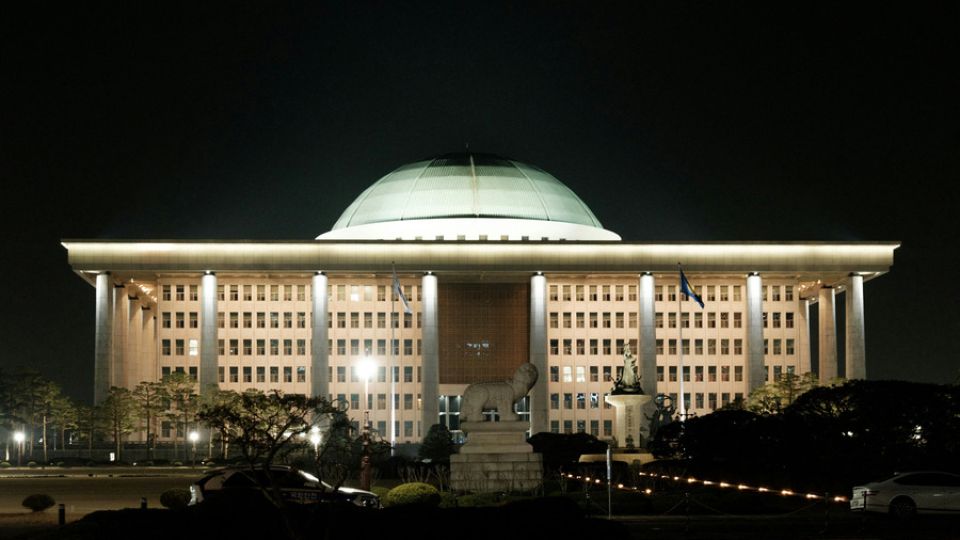April 14, 2025
SEOUL – Major political parties in South Korea are quickly gearing up for presidential primaries to nominate their respective candidates in early May, with candidacy registrations starting Monday.
The conservative People Power Party — with which disgraced former President Yoon Suk Yeol was affiliated — will register candidates on Monday and Tuesday. They will then be narrowed down to four by April 22, with the party’s presidential primary to be held on May 3.
The liberal Democratic Party of Korea will also start receiving candidacy registrations on Monday, in hopes of an ultimate presidential nomination in early May.
Those vying for the nomination of the ruling party will likely include former Labor Minister Kim Moon-soo and former Daegu Mayor Hong Joon-pyo — both of whom recently resigned after the Constitutional Court upheld Yoon’s impeachment — as well as North Gyeongsang Province Gov. Lee Cheol-woo, Incheon Mayor Yoo Jeong-bok and Reps. Ahn Cheol-soo, Na Kyung Won and Yoon Sang-hyun.
A day before candidacy registration, Ahn, one of only a few conservative lawmakers who defied the party and voted for a motion to impeach Yoon in December, announced presidential pledges including the adoption of a parliamentary system to curb presidential power.
Yet to be seen among the conservative bloc is whether acting President and Prime Minister Han Duck-soo will express intention to run for president and participate in the party’s nominating process.
Following Saturday’s decision by Seoul Mayor Oh Se-hoon — considered a popular center-right figure — not to run for president in the June election, Han is receiving renewed requests from inside the conservative party to run for president.
Rep. Sung Il-jong of the People Power Party said in a Facebook post that Han should not ignore the people’s expectations for him to be the next leader of the country.
The Democratic Party’s Rep. Kim Sung-hoi said in a statement Sunday that Han should refrain from obsession with power and remain politically neutral as the acting president.
Another presidential hopeful and former lawmaker Yoo Seong-min declared Sunday he would opt out of the presidential primaries with the People Power Party, leaving him the option to run for president as an independent candidate or with another political party.
Yoo in a Facebook post blasted the conservative party for “refusing to feel remorseful and start anew,” even after the party had a second president impeached in less than a decade.
With no clear leader in sight in the race among conservative hopefuls, the Democratic Party’s two-term lawmaker Rep. Lee Jae-myung is far ahead of other candidates in terms of his popularity with the liberal bloc.
Against this backdrop, the Democratic Party’s anticipated change of nominee selection rules is creating resistance from within, as would-be rivals to Lee in the party argue that the changes are meant to favor Lee.
On Saturday, the Democratic Party declared it would not pursue an open primary in nominating the party’s candidate. The change of rules would instead weigh 50 percent of the primary to voters registered with the Democratic Party, while the other 50 percent would reflect the outcome of a poll involving people regardless of party affiliation.
The liberal party has claimed that the change was inevitable to prevent those affiliated with the conservative party from taking part in the party’s primary for the presidential nomination or influencing its outcome.
This would mark a major shift, as the party had adopted an open primary for presidential nominations since 2017, meaning no voter was required to be a member of the party.
Gyeonggi Province Gov. and liberal presidential hopeful Kim Dong-yeon expressed disappointment over the party’s announcement that it would no longer run an open primary on Saturday, saying it signals Lee “does not trust the people.”
Meanwhile, former Democratic Party Chair Lee, who resigned soon after Yoon’s removal from office, will visit the headquarters of Furiosa AI, which develops artificial intelligence inference chips, in Seoul on Monday. Lee has yet to weigh in on the primary rule change.


